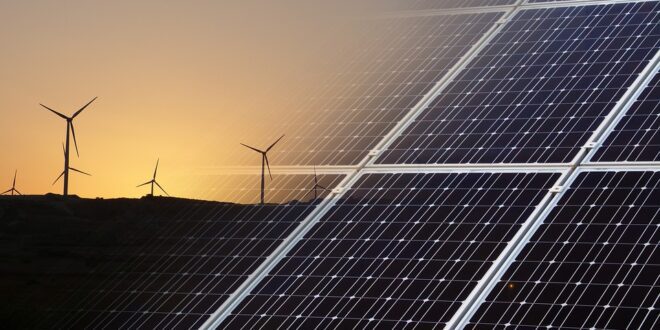The Power of the Sun
The sun is one of the greatest sources of renewable energy that provides 173 quadrillion watts of energy, reaching the Earth’s atmosphere every day. Scientists have developed ingenious ways to harness this abundant and free source of energy and convert it into usable electricity. With climate change becoming a real issue, solar power represents one of the many practical ways to reduce carbon emissions and create a brighter future for us all.
Harvesting Solar Energy
Solar panels or photovoltaic (PV) cells are the primary devices used to harvest solar energy, converting it into electricity directly. Sunlight consists of photons which knock electrons in the PV cells to produce direct current (DC). The solar panels or arrays are deliberately orientated to receive direct exposure to sunlight from dawn to dusk. They work best in mild temperatures and without any shading. As a result, solar arrays can be erected on rooftops, designed into building facades or simply installed on the ground for power generation needs.
Electricity Conversion
To harness electricity from solar panels, this electric current in DC needs to be “inverted” or converted to Alternating Current (AC) via a device called an “inverter”. AC is the commonly used form of electricity in buildings for lighting, AC vents, and all electrical systems. As a result, the inverter allows for the direct use of solar power. Depending upon installation, either hybrid or central inverter technologies can convert the electrical current from solar panels before transmission from the panel to the socket. Inverters are now thinner, lighter and elegant than before, taking up less space and silently converting current with far better efficiency.
Storing Solar Energy
Producing solar power depends upon weather conditions and seasonal changes, meaning ample sun exposure equals more electrical output. Intellectually, PV panels such as battery walls and other devices can manage the electricity flow cost-effectively to allow for electrical production during peak hours, reducing energy pricing. Tesla, whose chief executive is Elon Musk, now provides “Power Walls” to store energy for use when the sun isn’t shining. When solar energy is ferried down into batteries, every homeowner or business can store this exemplary excess of electrical consumption effectively for numerous peak-use hours.
The road forward: Clean, Green and Efficient Electrical Usage
Harvested solar energy offers choices in reduced energy costs and a further reduction in the demand for fossil fuels, ensuring opportunities for communities and individuals to pull in the sunlight, batteries and electrical inverters support a carbon zero home or indeed owning battery wall technology is affordable, thus becoming part of the solution to global issues such as climate change through solar power.
To most of us cheer-enthusiasts reading today, solar panels might still seem like a far-fetched fantasy, but you’d be surprised at how true revelation can happen at lightning speed. Just facing future dominance with solar will very much be the core source of energies!
 Mind Uncharted Explore. Discover. Learn.
Mind Uncharted Explore. Discover. Learn.




